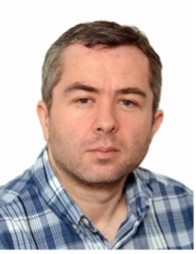Workshop on Process Compliance and Control
(project overview)
The research results of the project System for real-time monitoring and control of distributed processes, anomaly detection, early warning and forensic transaction analysis – PCC will be presented through a special workshop as a part of the SoftCOM 2022.conference. The PCC (Process Compliance and Control) project is a cooperation of university and ICT industry, namely the cooperation between University of Zagreb Faculty of Electrical Engineering and Computing and Multicom.
The traditional way of discovering business processes was manual, tedious, and error prone. It was based on a series of meetings and workshops where business process analysts would talk to the various people in the organization, trying to reconstruct (discover) business processes occurring in the organization. Many of such projects failed, due to various unmanageable reasons: organization size (the number of people that needed to be talked to), willingness of people to participate in the process discovery project, and the level of technical details that needs to be understood by the business process analysts to correctly define organization processes. This is especially significant in technical industries, such as telecommunication industry, where business and operational systems collaborate in big end-to-end business processes, and where business process analysts need to understand both business and technical details to a sufficient degree to be able to discover business processes.
Recently, scientific researchers came up with a new approach in discovering organizational business processes, by mining data coming from traditional information systems. Data coming from databases, communication messages (service invocations for example), and data streams are being collected, enriched, transformed, and then used by various algorithms to reconstruct (discover) business processes. The aforementioned research focuses on various aspects of the business process discovery: how to sample data from traditional information systems, enrichment of the sampled data, transformations to simplify data, and then algorithms for the process discovery.
In this project we focused our research on creating a tokenized automata capable of capturing flows and sequences from the sampled data. As part of the research we started by envisioning the way how to sample data from the traditional information systems, which is then enriched (possibly temporally), and transformed into a set of data streams. Later, we consolidate these data streams by temporally ordering the data and transforming it into simple messages in the format (IEEE XES) that can be consumed by the developed tokenized automata. Then, the automata builds its structure based on the input messages. Tokens (as in Petri nets) where added to the automata to be able to track multiple process contexts at once in the same automata structure (instance). Such automata can be also used to perform business process compliance check, where we compare the data sampled from the information systems to the automata structure. Automata also collects statistics from the input messages, which can be further used to analyze frequency and regularity of the undertaken activities in the organization, and by that isolating more regular process flows, or flows that deems to be irregular or even anomalous.
Further research goes into adding data storage to the automata transitions, which would help to deeply analyze business objects in the context of the business process flows. This would allow to reveal some user intentions, flow decision regularities, and draw some semantic conclusions in the context of the business process flows.
This work was supported by the European Regional Development Fund through the Operational Programme Competitiveness and Cohesion 2014–2020, under the project System for real-time monitoring and control of distributed processes, anomaly detection, early warning and forensic transaction analysis – PCC (KK.01.2.1.02.0097).
MODERATORS:
 Boris Vrdoljak is full professor at the University of Zagreb, Faculty of Electrical Engineering and Computing. He received his Ph.D. degree from the same faculty in 2004. He spent 3 months as a visiting researcher at the University of Bologna, Italy, and 12 months as postdoctoral researcher at INRIA institute, France. His research interests cover ontology matching, e-business security, data warehousing, and big data analytics. He is manager of the Faculty of Electrical Engineering and Computing team in the PCC project. Boris Vrdoljak is a member of the Centre of Research Excellence for Data Science and Advanced Cooperative Systems (ACROSS-DataScience), Data Streams Laboratory, and Laboratory for Information Security and Privacy. He is also president of the council of the postgraduate specialist study Information Security.
Boris Vrdoljak is full professor at the University of Zagreb, Faculty of Electrical Engineering and Computing. He received his Ph.D. degree from the same faculty in 2004. He spent 3 months as a visiting researcher at the University of Bologna, Italy, and 12 months as postdoctoral researcher at INRIA institute, France. His research interests cover ontology matching, e-business security, data warehousing, and big data analytics. He is manager of the Faculty of Electrical Engineering and Computing team in the PCC project. Boris Vrdoljak is a member of the Centre of Research Excellence for Data Science and Advanced Cooperative Systems (ACROSS-DataScience), Data Streams Laboratory, and Laboratory for Information Security and Privacy. He is also president of the council of the postgraduate specialist study Information Security.
 Dalibor Krleža is a principal researcher at the University of Zagreb, Faculty of Electrical Engineering and Computing. After finishing the graduate Computer Science study at the same faculty, he worked in the information industry as an IT architect and technical lead. In that time, he worked for big corporations, such as IBM, where he was in the role of technical lead for numerous big and valued projects. He was also a consultant in the Telecommunication industry, enabling some of the biggest transformation projects for IBM and various Telecommunication operators. In his Telecommunication consulting practice, his speciality was the order management automation. He received his Ph.D. degree from the same faculty in 2016. From 2017 he is working for the faculty on various scientific projects. He is a researcher and lecturer. His specific focus is applied mathematics, data structures, various advanced algorithms, and applied machine learning.
Dalibor Krleža is a principal researcher at the University of Zagreb, Faculty of Electrical Engineering and Computing. After finishing the graduate Computer Science study at the same faculty, he worked in the information industry as an IT architect and technical lead. In that time, he worked for big corporations, such as IBM, where he was in the role of technical lead for numerous big and valued projects. He was also a consultant in the Telecommunication industry, enabling some of the biggest transformation projects for IBM and various Telecommunication operators. In his Telecommunication consulting practice, his speciality was the order management automation. He received his Ph.D. degree from the same faculty in 2016. From 2017 he is working for the faculty on various scientific projects. He is a researcher and lecturer. His specific focus is applied mathematics, data structures, various advanced algorithms, and applied machine learning.
 Luka Humski is a Postdoctoral Researcher at the University of Zagreb, Faculty of Electrical Engineering and Computing. He received the master’s and Ph.D. degrees (both with summa cum laude) from the Faculty of Electrical Engineering and Computing. His research interests include synthetic data generation, social network analysis, data mining, machine learning, and electronic business. He works as a researcher on various science‑related projects.
Luka Humski is a Postdoctoral Researcher at the University of Zagreb, Faculty of Electrical Engineering and Computing. He received the master’s and Ph.D. degrees (both with summa cum laude) from the Faculty of Electrical Engineering and Computing. His research interests include synthetic data generation, social network analysis, data mining, machine learning, and electronic business. He works as a researcher on various science‑related projects.
